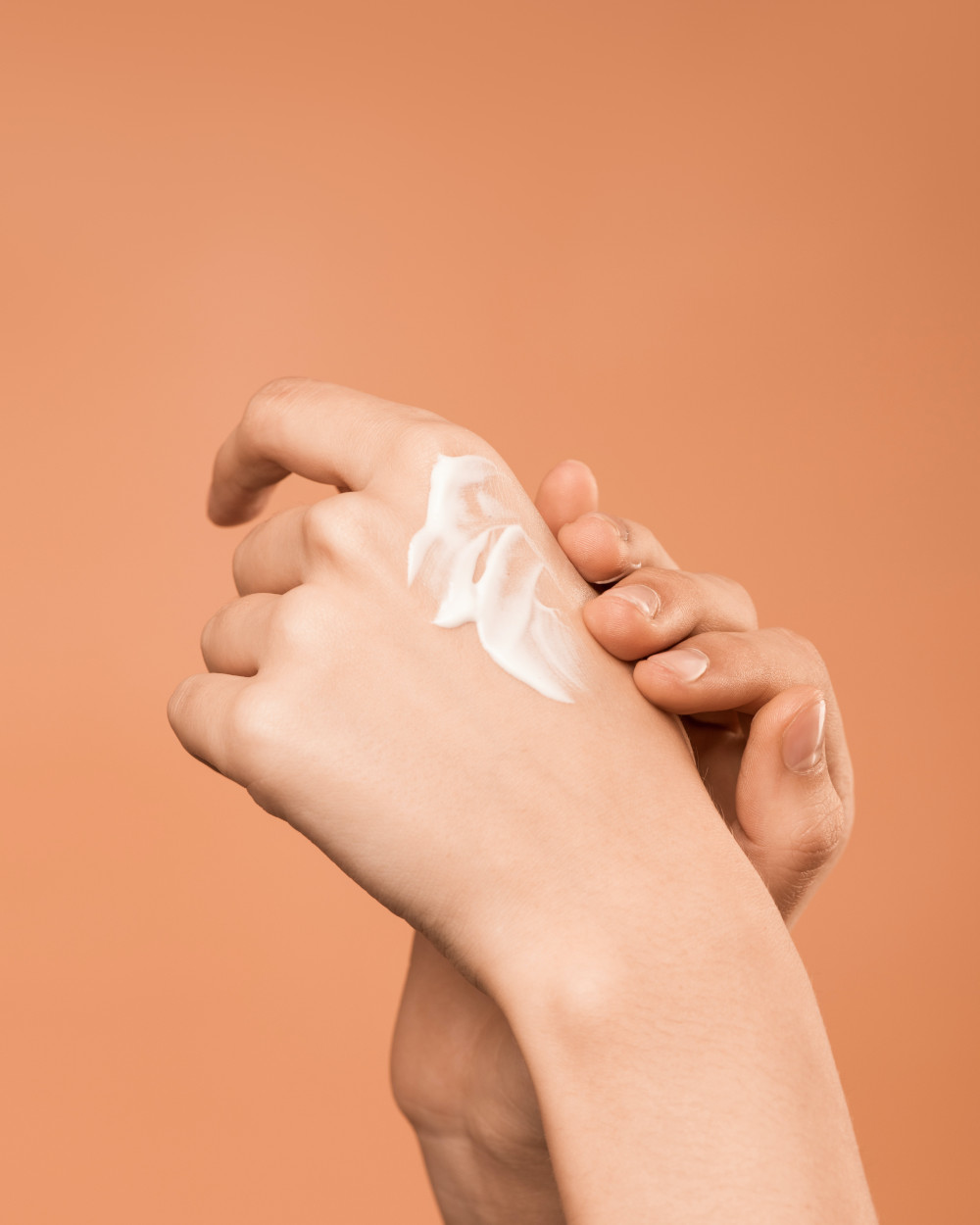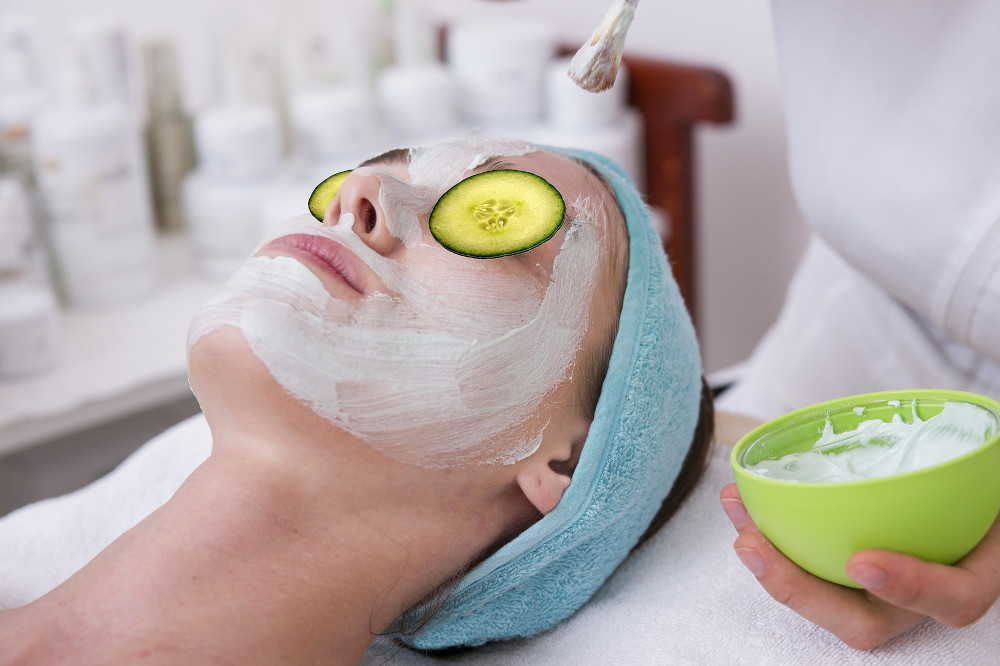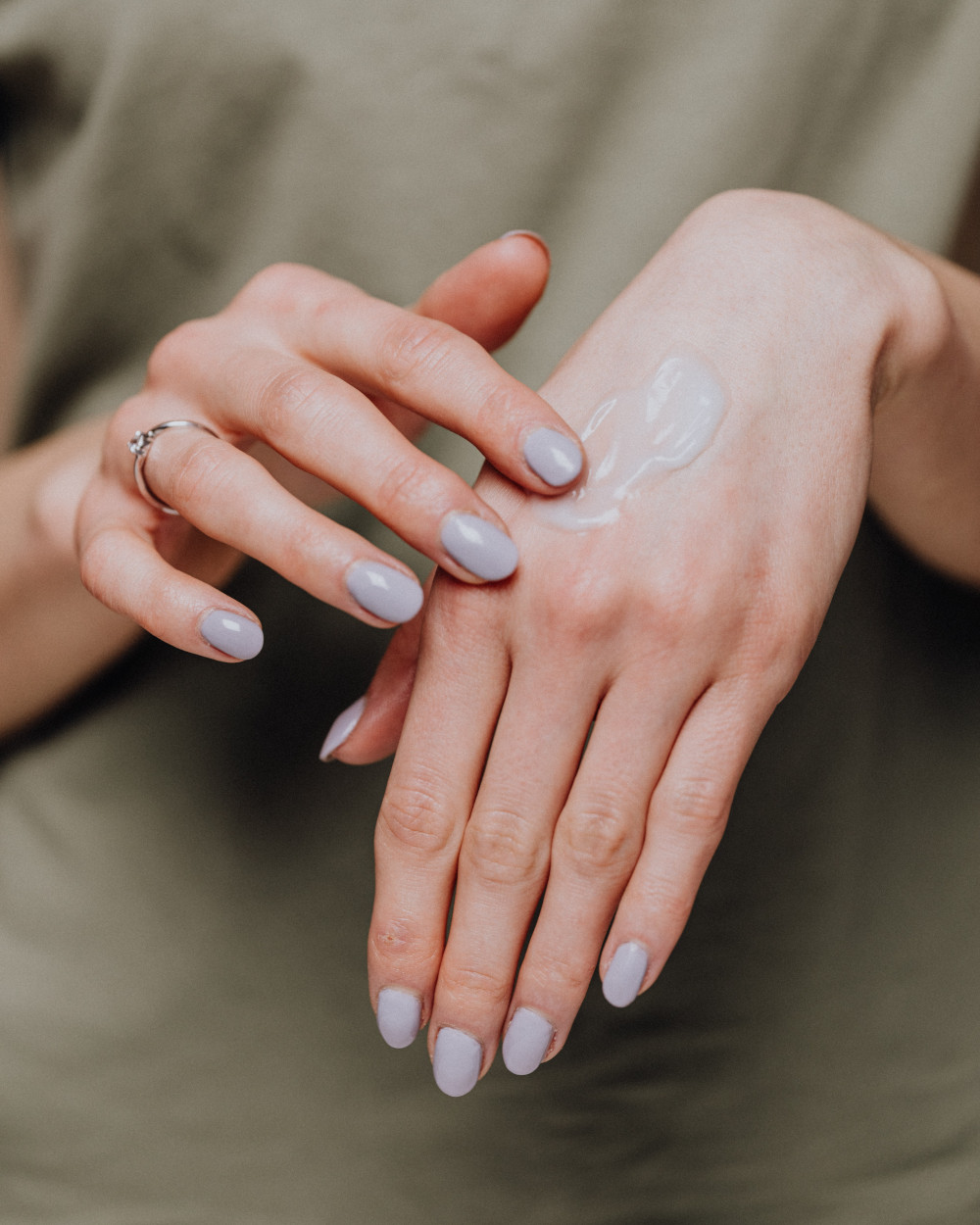Whilst sensitive skin is something more of us are experiencing, finding the right information and advice can be a minefield. More and more products come with complicated claims and lists of ingredients – so knowing what is really good, and bad, for skin sensitivities can be difficult.
So for some straight-talking, no-nonsense advice, sensitive skin laundry brand Surcare has enlisted the help of a panel of experts in their respective fields of laundry products, skincare, mental health, nutrition and medicine to answer 2021’s most commonly asked questions about sensitive skin, and to debunk some myths around the topic.
The expert panel
- Claire Lancaster – product development expert from laundry brand Surcare
- Camille Knowles – author and founder of The Beauty of Eczema skincare range
- Dr Ruth Cammish – GP and eczema patient
- Georgina Speake – psychotherapist
- Louise Baker – food specialist

Are there certain ‘ingredients’ in general, across all types of products, to avoid if you have sensitive skin?
Claire Lancaster says:
“Everybody is different and everybody’s skin is different – which is why pinpointing specific ingredients that could be irritating the skin can be a bit of a minefield.
“We’ve spent years researching how the skin reacts to certain things – including ingredients that are commonly used in laundry products, which can affect sensitive skin when clothing and fabrics come into contact with your body.
“Many washing detergents and softeners will contain fragrances, dyes, acids and enzymes which can easily irritate sensitive skin. In fact, fragrances can be one of the biggest triggers of flare ups.
“Using a non-biological washing powder that has been dermatologically tested, and washing powders and liquids that don’t contain any nasties like fragrance and dyes, is best.”
Camille Knowles says:
“Sensitive skin needs moisturisation so avoid anything that could cause the skin to dry out. Look for natural ingredients versus ones you perhaps don’t recognise, so products with natural butters such as shea butters and almond oil, omega three and six and oat lipids that will pamper and protect the skin naturally by absorbing and retaining moisture.
“Well moisturised skin is more able to deal with allergens and less likely to get irritated. It’s often trial and error to find an emollient that works for you, there’s no magic cream that works for everyone. Notice how your skin feels after you use a product and don’t use anything new for at least six weeks as skin takes time to regenerate.
“Look for products that have been specifically designed for people with sensitive skin and have been dermatologically tested. You should also be extremely careful with the products that you use on broken skin. Always seek advice from a dermatologist or doctor.”
Dr Ruth Cammish says:
“It can be helpful to track your symptoms and look for clues of when your skin flares. Is it better when you’re not at work? Does your skin only flare in certain places like your hands? Do you notice your skin becomes red after using certain products? Both fragrance and sodium lauryl sulphate (SLS) are used in numerous household products and skin care. SLS works by attracting water and breaking down oil and debris, so it is often found in cleansers, shampoos and laundry products. Those of us with a sensitive skin barrier, need those natural skin oils for hydration, so SLS containing products can lead to dryness and irritation.”

How can I stop my sensitive skin from getting worse?
Dr Ruth Cammish says:
“Triggers (causing skin sensitivity) vary from person to person and can be a challenge to identify. They may be something in the environment or things that come into contact with the skin like perfumed products. Some reactions happen straight away, but some can take a few days to cause a flare, so a symptom diary can be a great way to spot any patterns.
“Common triggers that you should take into account are things like – changes in temperature, hot or cold weather, pet hair, pollen, dust and dust mites, stress, food allergy or intolerances, irritants like soaps, bubble bath, shower gel, fragrance in cleaning products, airborne smells like candles and dampness at home or low humidity (dry air).”
Can eating certain foods help? Are there any foods to avoid?
Louise Baker says:
“Managing sensitive skin is the sum of many parts but nutrition plays a vital role in this process. Fuelling your body with the right nutrients will make a significant difference to dealing with skin issues.
“Fatty fish, such as salmon and mackerel, which is high in omega three fatty acids are crucial to maintaining skin health. Omega three will keep the skin supple and help the body fight inflammation. It is also a good source of vitamin E which is an important source of antioxidants for skin. Avocado and nuts also provide healthy fats which can support healthy skin.
“Other nutrients for skin health are Zinc, Vitamin A, C and E. Meat, shellfish, chickpeas, lentils, nuts and pulses, eggs and dairy are all great sources of Zinc. Whilst eating an array of fresh fruit and vegetables – especially the dark, leafy variety – will provide the vitamins and nutrients that you need.
“Highly processed, salty, sugary and fatty foods don’t do our body any favours and, in turn, will exacerbate skin issues. Stick to a varied diet, with clean unprocessed ingredients and you should see a difference in your skin.”
Camille Knowles says:
“I’m a huge advocate of a Mediterranean diet and all of those healthy fats and vegetables really will help to nourish you from the inside out. Up the amount of green vegetables, oily fish, lean chicken, pulses and good fats that you are eating and your skin will thank you.
“Reducing the amount of coffee that you drink is also a good idea – in the winter months I opt for hot water and lemon instead of caffeinated hot drinks. Cutting down on alcohol can also help.
“One of the other key factors to keeping your skin looking its best is hydration. You can never underestimate the difference this will make and drinking at least 1.5 litres of water a day is something that you should build into your routine.”

Is summer or winter worse for skin flare ups and increased sensitivity?
Dr Ruth Cammish says:
“The skin is our largest organ; our first line of defence against our environment, be that temperature changes, UV light or pollution. As a barrier it keeps moisture in, controls our temperature and protects us from infection.
“The skin barrier is made up of skin cells, lipids and fatty acids. A crucial part of this outer layer are ceramides, a lipid which acts like the cement keeping a wall from falling down. They make skin softer and form a waterproof seal, preventing water loss and dehydration. In winter, dry air, cold winds and indoor heating lead to the skin losing water to the environment. That’s why we need to work extra hard to keep our skin barrier moisturised, to counteract the effects of drier air and lower humidity.”
Camille Knowles says:
“I’m a huge believer in the healing power of the sun and like many people find that my skin improves in the summer months. There is more humidity so our skin is less dry and more sunlight brings an increase in the sunshine vitamin, vitamin D, which plays an important role in skin protection and rejuvenation.
“I believe that there are are no hard and fast rules around how your skin will respond in each season. The most important thing is to keep it moisturised and protected with an SPF all year round and never be disheartened if your symptoms worsen or you experience a flare up during the summer months.”
Claire Lancaster says:
“There are lots of factors that can contribute to skin sensitivity and the weather is certainly one of them. For many people the winter months can play havoc with their skin – more time spent indoors in central heated homes, harsh cold winds and lack of vitamin D can all take its toll.
“The skin barrier is made up of skin cells, lipids and fatty acids. A crucial part of this outer layer are ceramides, a lipid which acts like the cement keeping a wall from falling down. They make skin softer and form a waterproof seal, preventing water loss and dehydration.”

Does stress cause sensitive skin?
Georgina Speake says:
“It’s no coincidence that reports of increased stress caused by the events of the past 12 months mirror increases of people suffering from sensitive skin; the role of stress should never be ignore when it comes to managing sensitive skin.
“When we are stressed our body produces excess cortisol (also known as the stress hormone). It is this hormone working beneath the surface that is responsible for redness, dryness, increased sensitivity, dullness and sagging. It can also increase the production of sebum which can lead to spots and breakouts.
“Taking steps to manage stress, such as meditation, exercise, time spent outdoors, self-care and a night-time wind down routine, can help. It is important to acknowledge that wider factors such as stress, diet and other aspects of our outlook on life can all play their role. Therapy is a positive way to explore our triggers so as to reduce stress. It is also a resource to learn new skills enabling us to support ourselves appropriately at times of stress.”
Camille Knowles says:
“Having suffered from chronic eczema since I was young, I know that there are lots of factors that can take their toll on my skin. As such, I’m a huge advocate of taking a mind, body and soul approach to managing my own skincare, and this forms the basis of my ‘HOPE principles’ – a holistic way of dealing with skin issues which I developed to share with other people who have skin conditions and concerns. Within the HOPE principals are Home, Optimism, Purpose and Pampering, Eating well, Exercise and Ecotherapy.
“I find that when I am focused on all of these factors my skin is at is best. This means that I always try to exercise regularly, spend time outside appreciating nature, take time out to pamper myself, meditate, practice daily affirmations, journal and ensure I have goals and aspirations. All of these things help me keep on top of breakouts and flare ups.”

How else can I reduce the chances of my skin flaring up?
Claire Lancaster says:
“Never overlook the role that dust and allergens in the home can play in aggravating sensitive skin. Our houses create the perfect conditions for dust mites and mould to thrive – a warm environment with lots of soft furnishings or fabric to breed in. These allergens can cause havoc for people with skin issues such as eczema and dermatitis and so taking steps to create an allergen free home can help to reduce flare ups.
“There are lots of things that you can do. Open windows to let fresh air circulate, vacuum your house every two to three days to remove dust particles you can see and the dust mites that you can’t see. Wash soft furnishings like cushions and curtains every few months. Change your bed at least every couple of weeks and wash your pillows and duvets twice a year. Even soft toys can attract dust mites and can aggravate children’s sensitive skin issues so wash them at a high temperature every six months.
“Mould is another irritant so take extra care to clean in all of the nooks and crannies that it can grow. Clean around window frames, the seals of your fridge and washing machine, shower curtain and any other parts of your home which are damp and humid. Ventilation is also crucial to keeping mould at bay – cooking with an extractor fan on, not drying your clothes indoors, opening windows and making sure that your bathroom is properly ventilated will help to avoid build ups.”
I’ve never suffered from sensitive skin before, why do I have it now?
Dr Ruth Cammish says:
“Frustratingly, most of us with sensitive skin, can react to a myriad of allergens rather than having a true contact dermatitis. This is called contact irritation and is more likely when the skin is dry as it allows allergens to enter the tiny gaps between our skin cells and cause inflammation. Common culprits are essential oils, fragrance, dust, pollen, dyes, soaps and detergents.
“Another common time to have sensitive skin is over 50. As we age, the ceramide ‘building blocks’ in our skin barrier decrease, leading to drier skin which is more vulnerable to irritation. For women, as the hormone oestrogen drops with the menopause, skin becomes less elastic and tends to produce less oil. It is a common time for skin to become reactive to fragrance, metal and dyes. These conditions worsen in winter as a dry skin barrier is less able to carry out its protective function and more likely to react to allergens such as perfumes, harsh detergents and dust.”

What are the tell-tale signs of eczema rather than just dry skin?
Camille Knowles says:
“Whilst eczema is commonly known as a dry skin condition the symptoms are so much more than that and will often depend on the type of eczema that you have. In general, people with eczema will experience inflamed, itchy patches of skin which can appear with a red rash. Other tell-tale signs include small red bumps that can ooze fluid when scratched, thickened scaly skin, swelling and crusting.
“The symptoms of eczema can be different for absolutely everybody – some people experience intense flare ups, whilst others will only experience mild to moderate symptoms, which may come and go. Breakouts can be extremely painful, especially when the itchiness gets so bad that it is scratched it until it bleeds. Known as the ‘itch-scratch’ cycle, this will often make a breakout worse and could cause infection.”
For more information about Surcare and additional advice on managing sensitive skin, visit surcare.co.uk.






















